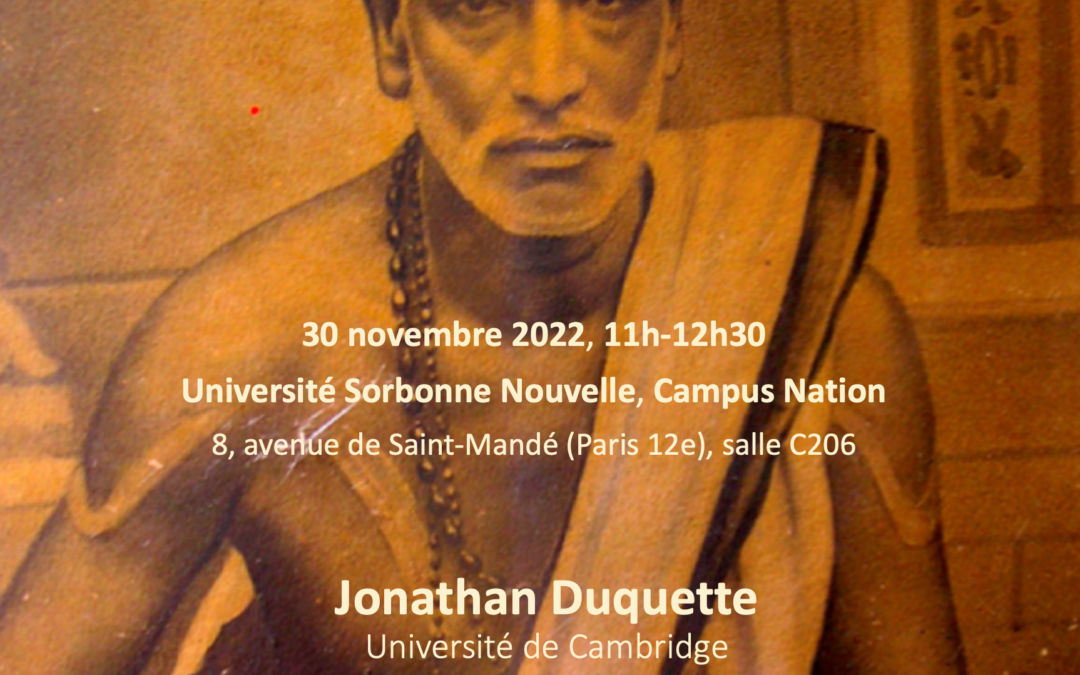Séminaire « Mondes indiens »
Nous vous le plaisir de vous annoncer de la tenue d’une conférence prononcée par Jonathan Duquette (Université de Cambridge) dans le cadre du séminaire « Mondes indiens » organisé par Vincent Eltschinger et Isabelle Ratié.
Cette conférence aura lieu sur le Campus Nation de la Sorbonne Nouvelle, 8 avenue de Saint-Mandé (Paris 12e), salle C206.
Résumé : It is well known that the history (and historiography) of modern Hinduism is closely intertwined with Advaita Vedānta. However, the dominating narrative has emphasised the importance of ‘neo-Vedanta’ to the expense of the ‘traditional’ Vedānta that was thriving in this period—the advaita of the pandits who continued to debate, teach and write in colonial times. What were they writing about? What key philosophical issues were they debating? Were these themes in continuity with the older exegetical tradition or responding to new patterns of epistemology and practice? Did Advaita Vedānta scholars continue to engage with canonical figures such as Śaṅkara, and if so, in what ways? How does this compare with neo-Vedanta interpretations, and what can we learn from this? In this talk, I reflect on these questions with a focus on Rāmasubba Śāstrī (1840-1922), a bold yet little known scholar of advaita who lived near Tanjore.

